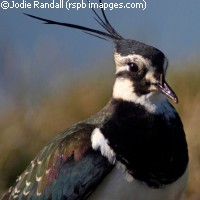Climate change affecting European birds, study reveals
Climate change is already affecting Europe's birds, according to a new study by Czech, Dutch and British scientists. The researchers arrived at their conclusion after developing the first ever indicator of the impact of climate change on wildlife on the continental scale. The indicator reveals that while some species are doing well as a result of climate change, the ranges of many more species are shrinking. The study is published in the journal PLoS ONE. 'We hear a lot about climate change, but our paper shows that its effects are being felt right now. The results show the number of species being badly affected outnumbers the species that might benefit by three to one,' commented the lead author of the paper, Dr Richard Gregory of the UK's RSPB (Royal Society for the Protection of Birds). 'Although we have only had a very small actual rise in global average temperature, it is staggering to realise how much change we are noticing in wildlife populations. 'If we don't take our foot off the gas now, our indicator shows there will by many much worse effects to come. We must keep global temperature rise below the two degree ceiling; anything above this will create global havoc,' Dr Gregory warned. Over recent years, scientists have gathered swathes of evidence of the impacts of climate change on wildlife; data gathered covers changes in the range or abundance of animals or plants, for example, as well as changes in the timing of events such as reproduction or migration. However, until now, no-one has developed a single indicator that expresses in a simple way the impacts of climate change on wildlife at the continental scale. In this latest study, the scientists drew on data from the Pan-European Common Bird Monitoring Scheme, which as its name suggests, uses data on common birds from across Europe as a measure of the health of the wider environment. Birds make for good markers because they are found across Europe, they respond rapidly to change, and Europe's many amateur birdwatchers gather extensive data on them. For the study, the scientists looked at long term population trends in 20 European countries of over 100 bird species during the period from 1980 to 2005. Over 500 species of bird nest in Europe, and the species studied are widely distributed across the continent and include both species with large ranges as well as species with more restricted ranges. The scientists then combined this data with models predicting how bird populations could be expected to respond to climate change. In short, if the population of a given bird changes in line with the projection from the model, the indicator goes up. In contrast, if a species' observed population trend goes against the model's prediction, the indicator goes down. Dr Stephen Willis of the UK's Durham University likens the new indicator to the FTSE (Financial Times Stock Exchange) index, which charts the fortunes of the UK's leading businesses. 'Only instead of summarising the changing fortunes of businesses, [our indicator] summarises how biodiversity is changing due to climate change,' he said. 'Unlike the FTSE, which is currently at a six-year low, the climate change index has been increasing each year since the mid-80s, indicating that climate is having an increasing impact on biodiversity. 'Those birds we predict should fare well under climate change have been increasing since the mid-80s, and those we predict should do badly have declined over the same period,' he explained. 'The worry is that the declining group actually consists of 75% of the species we studied.' The scientists note that their indicator 'is relevant to policy makers primarily because it can be used to track biological impacts on an annual basis and inform decision making about policy responses.' They suggest that slowing the rate of increase of the indicator could be a good policy objective, although policy makers should be aware that achieving this goal could take some time. Meanwhile, the researchers report that the EU has adopted the indicator as an official measure of the impacts of climate change on Europe's wildlife.
Countries
Czechia, Netherlands, United Kingdom



